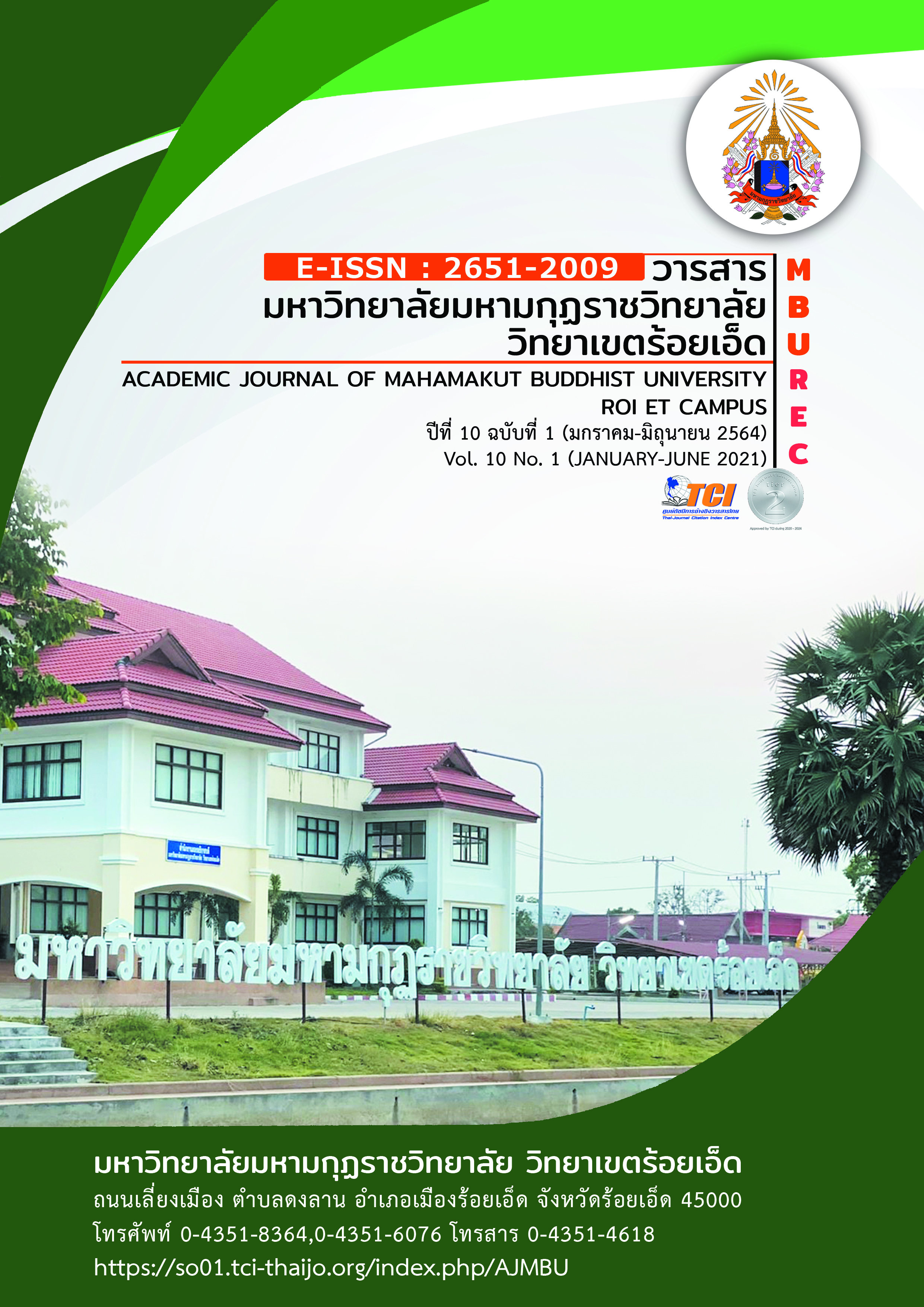The Methods of Studying Power and Construction of Meaning of Local Tourism through the Perspective of Roland Barthes
Main Article Content
Abstract
The methods of studying power and construction of the meaning of local tourism in the article are the methods of studying ‘the processes of construction of the meaning of local tourism’ and ‘the powers that are in the processes of construction of the meaning of local tourism’ by considering important events/situations related to local development and/or local tourism development which are analyzed through the perspective of Roland Barthes which consist of 4 steps are as follows: 1) limiting the scope of the study period. 2) limiting the scope of important events/situations which are classified for 3 groups, the first group is important events/situations directly related to local tourism development, the second group is important events/situations related to local development that directly affect local tourism, and the third group is important events/situations related to general local development. Then, select the important events/situations from the first and the second groups for studying. 3) Analyzing the powers and construction of the meaning of local tourism through the perspective of Roland Barthes is the analysis of the data to explain the processes that cause the events/situations, the powers that exist within the processes and analyzing the construction of the meaning of important events/situations that are in the level of myth or not. If they are in the level of myth, explain the meanings of important events/situations both denotations and connotations, and explain the main powers that construct the meanings and the powers that change the meanings from connotations to denotations. But if they are not in the level of myth, explain the meanings only denotations and specify the main powers only denotations. 4) Summaries of contents are the summaries of the presence/ absence of construction of meanings of important events/situations in the level of myth, denotations, connotations (if any), the main powers that construct the meanings and the powers that change the meanings of the important events/situations from a connotation to denotation in the level of myth (if any).
For the study of many important events/situations in the study period both short-term and long-term, priority of the main powers that construct the meanings and the powers that change the meanings from connotations to denotations in the level of myth (if any) by considering the frequency of the powers from each important event/situation, and priority both in the groups of important events/situations and the overall of important events/situations that are studied.
Article Details
References
กาญจนา แก้วเทพ. (2556). การบรรยายเรื่อง “ทฤษฎีวิจัย” โดย รศ.ดร.กาญจนา แก้วเทพ จัดการอบรมโดยคณะกรรมการวิชาการและวิจัย คณะนิเทศศาสตร์ มหาวิทยาลัยกรุงเทพ เผยแพร่โดยคณะกรรมการ KM คณะนิเทศศาสตร์ มหาวิทยาลัยกรุงเทพ. สืบค้นเมื่อ 19 ตุลาคม 2562. จาก https://www.youtube.com/watch?v=wu5 hKvrXunk
ไชยรัตน์ เจริญสินโอฬาร. (2555). สัญวิทยา โครงสร้างนิยม หลังโครงสร้างนิยมกับการศึกษารัฐศาสตร์. พิมพ์ครั้งที่ 2. กรุงเทพมหานคร : วิภาษา.
วไลลักษณ์ น้อยพยัคฆ์. (2547). การท่องเที่ยวเพื่อสนับสนุนคนยากจน (Pro –Poor Tourism –PPT). จุลสารวิชาการอิเล็กทรอนิกส์ การท่องเที่ยวแห่งประเทศไทย, 4, 1-8. สืบค้นเมื่อ 19 ตุลาคม 2562. จาก http://etatjournal.com/upload/51/Propoor.pdf
Dinkoksung, S. (2012). Cultural heritage and pro-poor tourism development case study: Ban pa-ao, mueang district, Ubon Ratchathani province. Journal of Liberal Arts, Ubon Ratchathani Univerity. 8(2). 17-58.
Lacey, A. and Ilcan, S. (2015). Tourism for development and the new global aid regime. Global Social Policy. 15(1). 40-60.
Meyer, D. (2010). Pro-poor tourism – can tourism contribute to poverty reduction in less economically developed countries?. In S. Cole and N. Morgan (Eds.), Tourism and inequality: Problems and prospects. Wallingford, Oxford shire, Cambridge, MA : CABI.


